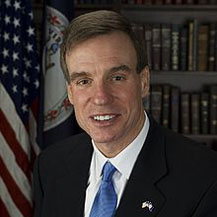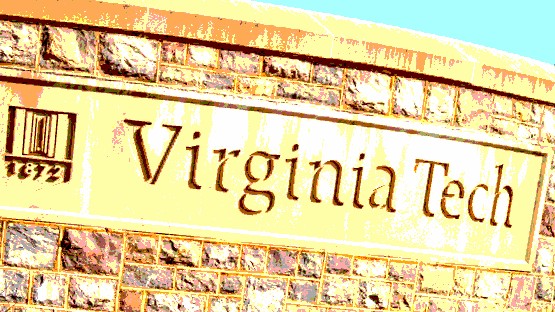U.S. Sens. Mark R. Warner (D-VA), Jerry Moran (R-KS), Bob Casey (D-PA), and Shelley Moore Capito (R-WV) introduced the first comprehensive legislation in the U.S. Senate to target food deserts by incentivizing food service providers such as grocers, retailers, and nonprofits to help eradicate these areas.

USDA defines a food desert as an area where a grocery store is not available within a mile in urban communities or 10 miles in rural areas. This bill expands on that definition by adding U.S. census tracts with a poverty rate of 20% (or higher) or a median family income of less than 80% of the median for the state or metro area. The legislation also defines a grocery market as a retail sales store with at least 35% of its selection (or forecasted selection) dedicated to selling fresh produce, poultry, dairy, and deli items.
“More than one million Virginians find themselves in low-income areas with no reliable source of healthy food, placing themselves at higher risk of diabetes, obesity, and heart disease,” said Sen. Warner. “Every person should have access to affordable and nutritious food regardless of where they live. By incentivizing food producers and sellers to go into communities where food access is a problem, we can help guarantee that fresh fruits and vegetables are available in the places where they are needed most.”
“Living in the breadbasket of our nation, we can often forget how prevalent hunger and the lack of access to healthy food in our own communities can be,” said Sen. Moran. “However, hunger and food insecurity are very real and threaten nearly 1 in 6 Kansans. The Healthy Food Access for All Americans Act would incentivize food providers to establish themselves in communities where people lack access to healthy, affordable food by encouraging the construction and establishment of grocery stories, food banks and farmers markets. All Kansans and Americans, regardless of where they live, deserve access to healthy food.”
“An estimated 37 million Americans live in food deserts in our country and Mayors understand how critically important it is to have the necessary tools to help address this issue. Strengthening incentives and delivery systems for more local food production, sustainable farming practices, and better access to affordable and healthy food options, are key pillars of our organization’s work. We applaud Senators Mark Warner and Jerry Moran for their leadership on “The Healthy Food Access for All Americans Act” and believe this legislation is a strong step towards the elimination of food deserts in our cities,”remarked Tom Cochran, CEO & Executive Director, The United States Conference of Mayors.
“Independent retail supermarkets and the wholesalers that supply them play a vital role in the communities they serve through access to food items and as a contributor to the local economy. The National Grocers Association has long supported the bipartisan efforts to find solutions to address the lack of food access in rural and urban areas and working towards strong private-public partnerships to address the barriers to entry faced by grocers in these underserved communities. We thank Senators Warner, Moran, Casey, and Capito for their efforts on the Healthy Food Access for All Americans Actand look forward to working with Congress to move this important piece of legislation forward,” said Greg Ferrara, SVP of Government Relations and Public Affairs for the National Grocers Association.
“Having access to healthy food options is critical to ending childhood hunger in America. Ending food deserts will help more low-income families shop for and prepare affordable, healthy meals; this has a powerful impact on the future health and well-being of our nation’s children. Share Our Strength supports The Healthy Food Access for All Americans Act and thank Sens. Warner, Moran, Casey and Capito for their leadership on this issue,” said Billy Shore, Founder and CEO of Share our Strength.
“Bread for the World is encouraged to see a bipartisan effort to address food deserts and improve access to nutritious food in low-income and underserved communities in America. Hunger costs the U.S. economy at least $160 billion in poor health outcomes and additional health care costs every year. This bill is an important step to reduce hunger and improve health across the country, said Eric Mitchell, Director of Government Relations for Bread for the World.
The full list of organizations supporting the Healthy Food Access for All Americans (HFAAA) Actincludes: Bread for the World, Environmental Working Group, Feeding America, Food Marketing Institute, Food Policy Action, Food Research and Action Center, the Food Trust, Local Initiatives Support Corporation, National Grocers Association, U.S. Conference of Mayors, the Reinvestment Fund, and Share Our Strength.
In order to qualify for a tax credit or grant for servicing qualifying food deserts, business and nonprofits must be certified as a “Special Access Food Provider (SAFP) by the Treasury Department and USDA. The Healthy Food Access for All Americans Act qualifies as SAFPs those businesses and nonprofits who service food deserts through the following:
- New Store Construction: Companies that construct new grocery stores in a food desert will receive a onetime 15% tax credit (of the property plan and construction) after receiving certification from a regional CDE and Treasury/USDA as an SAFP.
- Retrofitting Existing Structures: Companies that make retrofits to an existing store’s healthy food sections can receive a onetime 10% tax credit after the repairs certify the store as an SAFP.
- Food Banks: Food banks that build new (permanent) structures in food deserts, will be eligible to receive a onetime grant for 15% of their construction costs, after certification as an SAFP.
- Temporary Access Merchants: Temporary access merchants (i.e. mobile markets, farmers markets, and some food banks) that are 501©(3)s will receive grants for 10% of their service costs for that year.
Sen. Warner has been a strong advocate for initiatives that promote healthy eating and physical wellness. As Governor, he spearheaded the Healthy Virginia initiative, which encouraged policies and practices that promoted good nutrition and regular physical activity in schools and state government. As Senator, he introduced legislation to allow the President’s Council on Physical Fitness & Sports to solicit private funds to expands on its efforts on exercise, nutrition, and wellness.
To read the full text of the bill, click here. A summary can also be found here.
For a map of areas in the United States that would qualify to be served as food deserts under this bill, click here.
Population of Virginians living in
food deserts as defined in this bill*
| City or County | Population |
| Albemarle | 3765 |
| Amelia | 5777 |
| Amherst | 10217 |
| Augusta | 6689 |
| Bath | 4731 |
| Bedford City | 6222 |
| Bland | 3901 |
| Bristol | 13982 |
| Brunswick | 8041 |
| Buchanan | 4029 |
| Buckingham | 8400 |
| Buena Vista | 6650 |
| Campbell | 8756 |
| Carroll | 4767 |
| Charlotte | 12586 |
| Chesapeake | 12198 |
| Chesterfield | 14188 |
| Colonial Heights | 2629 |
| Covington | 3098 |
| Cumberland | 10052 |
| Danville | 13980 |
| Dinwiddie | 5720 |
| Essex | 8026 |
| Fairfax | 5280 |
| Floyd | 15279 |
| Franklin | 25439 |
| Franklin City | 3812 |
| Frederick | 10874 |
| Fredericksburg | 7567 |
| Goochland | 4263 |
| Grayson | 5277 |
| Halifax | 32142 |
| Hampton | 29365 |
| Harrisonburg | 15330 |
| Henrico | 37342 |
| Henry | 26005 |
| Highland | 2321 |
| Hopewell | 12120 |
| James City | 4014 |
| King and Queen | 3881 |
| Lynchburg | 38672 |
| Manassas | 7678 |
| Manassas Park | 6248 |
| Martinsville | 6166 |
| Mecklenburg | 15154 |
| Montgomery | 27237 |
| Newport News | 24016 |
| Norfolk | 35038 |
| Norton | 3958 |
| Nottoway | 9783 |
| Orange | 13756 |
| Petersburg | 15759 |
| Pittsylvania | 18926 |
| Portsmouth | 9507 |
| Prince Edward | 10624 |
| Prince George | 8543 |
| Prince William | 57728 |
| Radford | 12260 |
| Richmond City | 60545 |
| Roanoke City | 41329 |
| Rockbridge | 15873 |
| Rockingham | 11530 |
| Salem | 10424 |
| Scott | 7959 |
| Shenandoah | 9068 |
| Smyth | 3913 |
| Southampton | 7958 |
| Spotsylvania | 31964 |
| Stafford | 12818 |
| Suffolk | 4795 |
| Sussex | 6377 |
| Tazewell | 12740 |
| Virginia Beach | 35279 |
| Warren | 5562 |
| Washington | 3812 |
| Waynesboro | 5240 |
| Winchester | 5066 |
| Wise | 9566 |
| Wythe | 6773 |
| Total: | 1,048,359 |
*The last year for which data is available is 2015.










